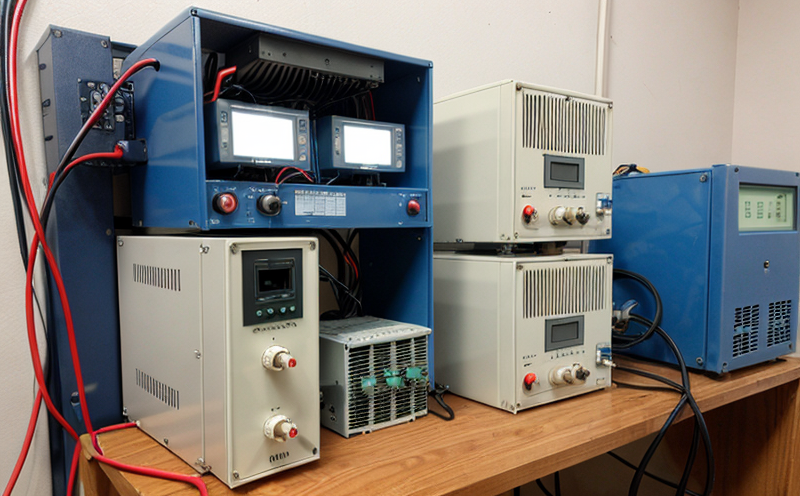ASTM D877 Insulating Oil Dielectric Strength Testing
The ASTM D877 standard provides a method to determine the dielectric strength of insulating oil used in electrical equipment, such as transformers and switchgear. This test is critical for ensuring the insulation integrity of these systems by measuring their ability to withstand an electric field before breakdown occurs.
Dielectric strength testing is essential because it helps identify potential issues with the insulation quality that could lead to equipment failure or safety hazards. By performing this test, we can ensure that insulating oil maintains its performance characteristics over time and under varying conditions, which is particularly important in railway and transportation systems where reliability is paramount.
During testing, a sample of the insulating oil is placed between two electrodes within an apparatus designed to apply a high voltage. The voltage applied increases gradually until the oil breaks down, causing a spark or flashover. At this point, the test stops, and the highest voltage that could be applied before breakdown occurs is recorded as the dielectric strength.
The results of ASTM D877 testing can vary depending on several factors including temperature, contamination levels, and age of the oil. For instance, older or contaminated insulating oil may exhibit lower dielectric strengths compared to freshly formulated oil. This makes regular testing crucial for maintaining safe operating conditions in railway and transportation systems.
Proper specimen preparation is key to obtaining accurate results from ASTM D877 tests. Samples should be taken from the equipment's reservoir, ensuring they are representative of the overall quality of the insulating oil within that system. Once collected, samples need to be stored properly until testing can be conducted according to specified procedures outlined in ASTM D877.
The test apparatus used for ASTM D877 must meet strict specifications to ensure accurate and reproducible results. Key components include electrodes made from a material resistant to degradation by the oil being tested, and a dielectric support that holds the sample securely during testing without introducing additional electrical properties into the measurement.
| Applied Standards |
|---|
| ASTM D877 - Standard Practice for Electrical Insulation Resistance Tests of Transformer Oils and Other Electrical Liquids |
The application of ASTM D877 tests helps quality managers, compliance officers, R&D engineers, and procurement teams ensure that insulating oils meet specified performance criteria. For railway and transportation systems, this testing ensures the reliability and safety of critical components like transformers and switchgear by confirming their dielectric strength remains adequate over time.
Understanding the context within which these tests are conducted allows us to appreciate their significance for maintaining robust electrical systems in industries where downtime can be costly or dangerous. By adhering strictly to ASTM D877 standards, laboratories provide peace of mind that test results accurately reflect the true state of insulating oils used in various applications.
Applied Standards
| Applied Standards |
|---|
| ASTM D877 - Standard Practice for Electrical Insulation Resistance Tests of Transformer Oils and Other Electrical Liquids |
Benefits
- Ensures safe operation by identifying potential weaknesses in insulating oils before they cause failures.
- Helps maintain high levels of reliability in electrical systems, especially important for critical infrastructure like railways and transportation networks.
- Aids in compliance with international standards, enhancing trust among stakeholders and regulatory bodies.
Environmental and Sustainability Contributions
- Promotes the use of sustainable insulating oils that meet stringent testing criteria, reducing waste and promoting recycling practices.
- Encourages continuous improvement in manufacturing processes to reduce environmental impact while maintaining product quality.





